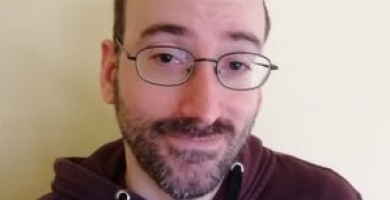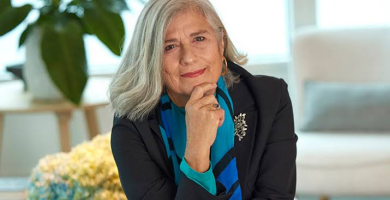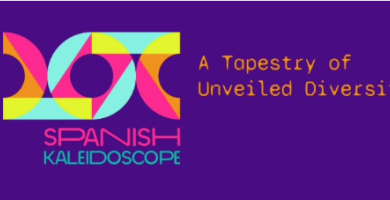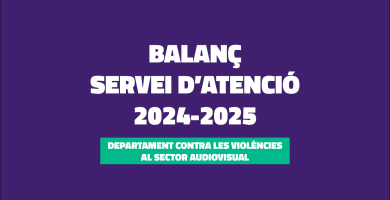
IGNASI FRANCH: “We’ve at least placed two very interesting stones on which we can gradually build among all of us, a stronger ACCEC with a greater capacity to have an impact on our colleagues, and if possible on the audiovisual community and film lovers."
This month we interview Ignasi Franch, a film critic and president of the Catalan Association of Film Reviews and Writing (ACCEC) We talk with him about the association and the sector, the I Film Research Award and their podcast, Umbracle.

When and why was the ACCEC created?
The ACCEC has quite a long history which goes beyond my generation, because it was founded in 1989. I was 10 years old, so there have already been the corresponding generational changes. At that time it was created with José Luís Guarner as president to try to integrate the critics in Catalonia and to have a reference association with a view to joining Fipresci, the International Federation of Film Critics. There was the idea of coming together in an association and also the operational aspect, as it was convenient to have an organization to interact with Fipresci in the international and institutional context.
Over the decades there have been many colleagues who have supported the ACCEC with their disinterested efforts: Esteve Riambau, Àngel Quintana, José Enrique Monterde, Violeta Kovacsics, Marta Armengou and all the colleagues who have participated in the different boards and assemblies. There are many names, many people who have devoted hours of their life...
I’d also like to stress that we have a high association index within the sector. Unfortunately, we’re not all in it, but many of us are. And we’re proud of it, although we’d like to include everyone.
You are the Catalan Association of Film Reviews and Writing. Why this difference between reviews and writing?
I suppose that it was a way of trying to include everyone: press reviews, essays and essays intended for academic research... We have all these profiles. We also have audiovisual communicators devoted to information on films. In a way, the idea was to have an umbrella which was as inclusive as possible, on the assumption that maybe in the future it will be necessary to look for other formulas. Like approximately six years ago the name was changed to Association of Film Reviews and Writing, to avoid using the generic masculine which was previously used in the Spanish name of the Association of Film Critics and Writers.
You also organize round tables, presentations, and the members of the association take part on the jury of several festivals. What activities does the association promote and with which festivals do you collaborate throughout the year?
We collaborate with D’A, Americana, BCN Film Fest, Sitges Festival, L’Alternativa,... We’re always open to collaborate because we believe that festivals are a significant part of the audiovisual culture ecosystem. And apart from the juries for reviewing films, over the last few years we’ve done things with L’Alternativa Festival, for example, which is fairly sensitive to the practice of film reviews, to the problems that we also have as a sector, and we consider that we are two links which are sometimes fragile in the audiovisual chain. We’re not Hollywood majors, so we try to support each other. With the Sitges Festival we’ve jointly organized a section for 25 years, Seven Chances. It was created years ago as a space to recover fantasy films which were to some extent forgotten or which have been recovered because they were worth it. These are the main collaborations, but we’re always open to doing other things. This year we were going to do an episode of our podcast live from the D’A, but in the end it wasn’t possible due to a last-minute illness. But we can do things with the D’A and with anyone else who wants to. We appreciate the cultural value of festivals and we’re always open to participate in some way.
Before you mentioned the difficulties of the sector. What are these difficulties?
There are many (laughs). It depends in which area you work as a professional, but normally the majority of our colleagues work in several fields at the same time. A very large part of the members are university teachers who also do press reviews or specialized reviews or essays, or all these things at the same time. Not always due to an express desire to be versatile, but rather it’s a way of increasing their income. In universities, we know that the figures which have become established in recent years, such as adjunct instructors, find it very difficult to have a salary which allows them to live from their university work. So an adjunct instructor has to collaborate with the press, etc. in order to pay their bills and have a decent salary. As for working as a journalist, it’s extremely difficult to live just from this, because the rates paid by the media are fairly low and, in actual fact, I hardly know anyone who earns their living in the media and is specifically devoted to film. I think that it’s just me and a few other people, maybe people with a salary or people from the news desk. But that’s an exceptional situation with written reviews. Maybe there are more colleagues in the audiovisual media, but it’s very difficult in reviews for the written media. In the media, with the paper crisis, the Internet crisis, the 2008 crisis, the pandemic crisis, we’ve been going from one crisis to another and this has greatly revolutionized the ability to earn a decent living from film reviews. The publishing world is no panacea either, quite the opposite. So here we are, trying to survive.
What are the advantages of becoming a member?
That question sometimes makes us a little uncomfortable, because we really believe that becoming a member is intrinsically positive. In an ideal world, having a shared space should be good in itself. On the practical side, we collaborate with the Filmoteca which generously provides us with free access cards for the members of ACCEC who ask for them. Belonging to ACCEC, as it is the national reference in Fipresci, allows you to be a candidate to participate in Fipresci juries in international and Spanish festivals such as Gijón, Seville, San Sebastián and Valladolid. It also allows you to access internal calls, the small or not so small jobs that we offer to members, such as when we do the directory of publications. Or those collaborations with festivals which we often manage through an open call. Unless the organization directly tells us the names, we always try to have an open call so that everyone can be a candidate. Then there’s the subject of the film review juries, which is a more day-to-day task.
This year you launched the 1st Film Research Award. How did this idea arise and why?
The association was at a dead end in so far as, after a few years of cohabitation with another Spanish association, it again became the only national reference in Fipresci and this gave us the idea that we should grow and do more things. Despite the fact that our resources are very limited, among other things because we don’t receive any institutional funding for our operation, but just for specific projects. So we don’t have a professional structure. All the members of the board are just volunteers. Not even the food in the association is paid for; everyone pays for their own (laughs).
The issue arose of what things we could do assuming that we have to be more important without breaking this spirit of what we could call the peace of poverty. As there is no money in the ACCEC there is no competition, and no elbowing one’s way through. It’s a space where there are members who participate more in the assemblies, others who take part less, but there’s no competition because there’s no booty (laughs). In this respect I think the atmosphere is quite healthy. There’s often a certain antagonism between colleagues or resources in this type of space. Fortunately, and speaking from my personal experience (I can’t talk for everyone) I don’t have the sensation that this has happened in the association. Rather, it’s a friendly space for anyone who wants to take part.
We’ve done several things in the last two years. The research award together with the Catalan Film Academy with the support of the Journalists’ Union and the Catalan Government’s Ministry of Culture. It was created to give the possibility to undertake research of an intermediate length, between a press article and an academic publication, which is a format that it’s very difficult to do because there aren’t any professional spaces for it. There are academic journals where there’s no financial compensation. If you do this it comes within the professional field of your university research. This figure hardly exists in the specialized media or publications, and even less in collective books with different chapters written by different authors, which tend to be shorter than the format that we handle and moreover they don’t tend to be paid or they have very precarious conditions. The idea is to dignify research of an intermediate length due to the lack of financial ability to generate something which we’d also like to advocate, which is the film essay in book format. At present, it’s beyond our ability to offer decent remuneration, despite the generous contribution by the Catalan Government and the Academy.
Have you already presented the award?
The honorary award was for the academic and essayist Romà Gubern and the financial aid for the preparation of a short essay was for the project La representación de los hijos e hijas de los migrantes en el cine catalán (1992-2022) [The representation of the children of migrants in Catalan film (1992-2022)], by Jorge A. Trujillo. We’ll hold the official ceremony in around November, when the research has been completed and can be published in digital format with free download so that this publication is available for all film critic colleagues and for anyone interested in film in general.
As for the previous question, I’d like to stress that, apart from the Research Award, we have a podcast, Umbracle. As part of this attempt to grow a little without taking a leap into the void, we’ve also launched this project, and here I’d like to stress that there’s a whole group of members from outside the board of the ACCEC who strove to make this possible. The idea was to create a podcast of the association with the aim of creating a joint space which would go beyond the media spaces associated with specific journals or media. It’s a meeting point for all colleagues. We created a first season with 12 episodes. And now we’re waiting for the funding to do a second season, which we hope will be even more of a group effort, with more space for coming together and thinking. First we made some very interesting programmes for film critic colleagues, which could act as a tool. For example, I’m thinking of the theory of the actor. Often as critics we don’t focus particularly on the work of actors or we don’t have many tools to assess it, because we were trained more in film directing or scriptwriting. The programmes in which two specialists in this subject participated, Maria Adell and Manu Yáñez, were a collective learning space for film critic colleagues and for any film lover. In our opinion, there are other programmes like this one, such as the one about the Alcarràs generation, which were very interesting.
You’ve been president of the ACCEC since 2020. What is the experience like so far?
It’s been strange, because the COVID arrived in the week after I was appointed in the assembly. Even the assembly was quite spooky, as fear of infection was already brewing. It was strange, as I suppose it was for so many other people. A lot of the meetings were held online. It was more complicated to work as a team and be united and have enough energy and drive to do the proactive tasks in a context in which the entire board, or almost all of it, is in a notoriously precarious situation as regards both work and money. Proactive work thus involved an additional effort. And this is a problem which, again, isn’t exclusive to film critics or journalism, but rather it’s a social problem. A huge number of people are exhausted, tired; we are precarious, we are fragile and we don’t have the time or the drive to do the things that we’d like to do to have a full life, to contribute to society, in this case to the Association of Film Reviews and to our colleagues as a whole.
We’ve been doing what we can. Above all, in 2022, we launched the podcast and the 1st Film Research Award. Despite not being perfect, the mistakes made and the tiredness, we believe that we’ve at least placed two very interesting stones on which we can gradually build, slowly and among all of us, a stronger ACCEC with a greater capacity to have an impact on our colleagues, and if possible on the audiovisual community and film lovers in general.









